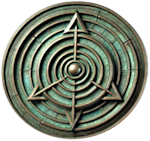Who will heal the healers?
The world after the COVID-19 pandemic is covered in wounds — many that existed long before, only brought to light by the crisis. One of the deepest among them is partition — the quiet division of humanity into opposing groups.
At the first sign of danger, people instinctively cluster together, like drops of mercury — smaller, seemingly safer, but increasingly separate. This instinct may bring temporary comfort, yet it can also lead to something far more damaging: division that lingers long after the crisis ends.
The Pathology of Partition
During the pandemic, the old divide of “us vs. them” reappeared with alarming clarity. Fear of infection quickly turned into suspicion, and communities fractured along countless lines:
Infected vs. healthy.
Vaccinated vs. unvaccinated.
Doctors vs. nurses.
Scientists vs. scientists.
Human vs. human.
As in past pandemics, a single microbe became a mirror — reflecting our fear and amplifying our tendency to separate rather than unite. The question remains: will these isolated “mercury drops” ever merge again into a stronger, wiser community, or stay divided by distrust?
The Wound of the Healers
True healing begins with what medicine calls salutogenesis — the creation of health, not merely the removal of disease. Yet one of the most neglected wounds today lies in the minds of healthcare workers.
Those on the front lines bore witness to chaos, death, and uncertainty on an unimaginable scale. Their resilience was their only safety net — and for many, that net has frayed. Some will recover, but others may quietly break beneath the weight of what they endured.
When that happens, who bears responsibility? The individual? Their family? Their institution? Or, as so often before, will we simply blame the virus?
Conclusion
If the world is our patient, then we must treat its wounds honestly. Cleaning a wound burns, but leaving it unwashed leads to infection — and eventually, sepsis. Avoiding discomfort may feel easier now, but it will cost us much more later.
The world needs healing — not just treatment.
The world needs salutogenesis — a commitment to restore meaning, connection, and trust.
And perhaps the most important question of all:
Who will heal the healers?
